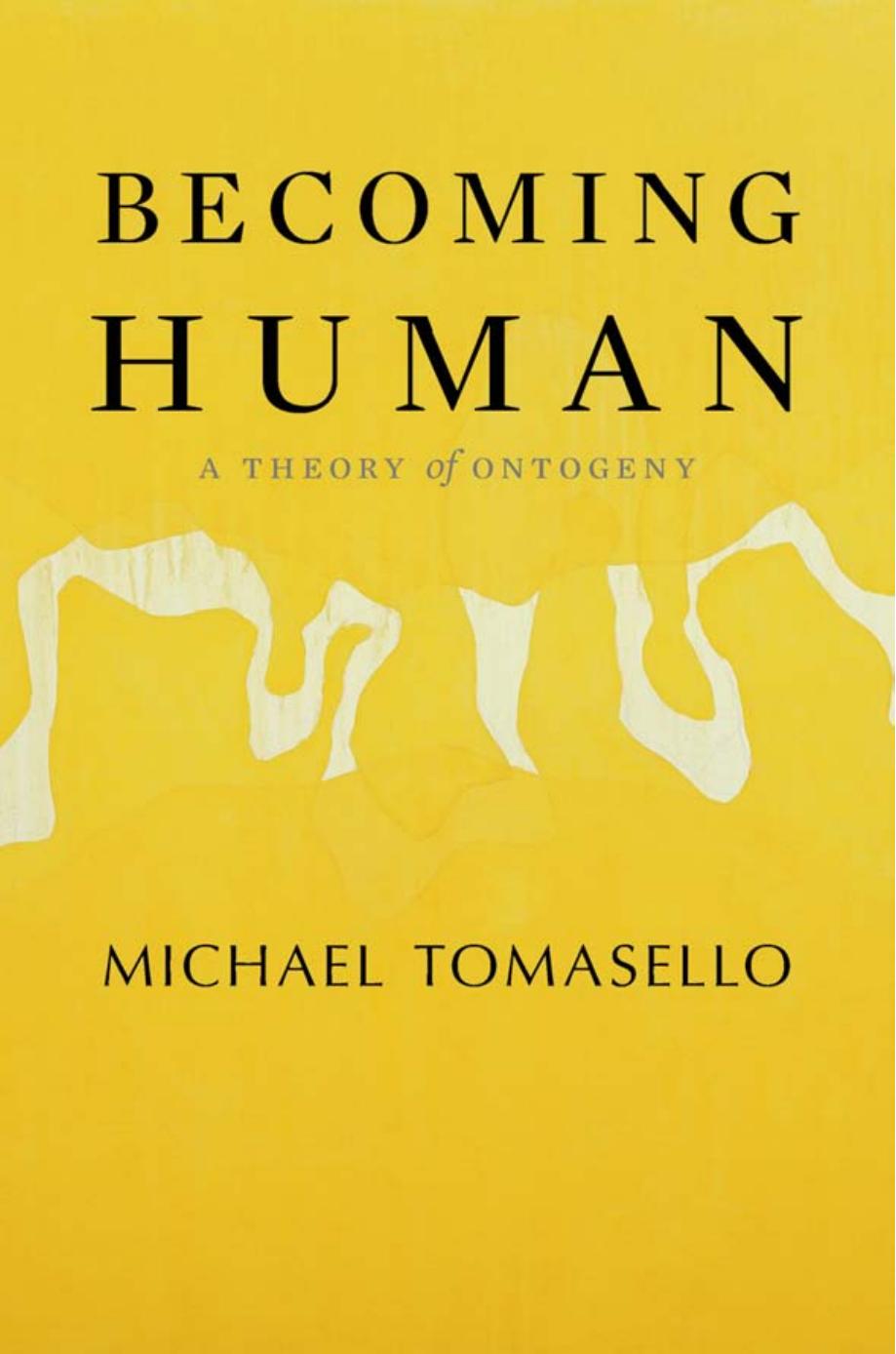Becoming Human by Michael Tomasello

Author:Michael Tomasello
Language: eng
Format: epub, pdf
Publisher: Harvard University Press
“I” and “You”
As young children interact collaboratively with others as a “we,” they come to understand and relate to them differently. Most importantly, collaboration implies a certain level of equality among partners. If you are coercing me, then it is not collaboration but domination or enslavement. If I am pretending to fully participate but really letting you do all of the work, then it is not collaboration but exploitation. Collaboration does not mean doing exactly the same work or same amount of work; collaboration means working together, ceteris paribus, on a more or less equal footing. As they collaborate with others in their daily activities and games, one- and two-year-old toddlers gradually come to appreciate this equality in the situation, and indeed they come to appreciate others as equivalent to themselves in general.
There are three aspects of children’s developing collaborative interactions that foster an understanding of self-other equivalence. First is the fact that in interdependent collaboration both partners are necessary agentive forces in producing the jointly desired outcome—and either could just as easily derail the process. Thus, during the one- to three-year-age period toddlers begin to recognize that not only do they need their collaborative partner for success (which chimpanzees already recognize) but their partner also needs them. This transforms an asymmetrical social tool understanding of the process into something more symmetrical and mutual. There are no directly relevant studies, to my knowledge, to demonstrate toddlers’ understanding of this symmetry. But several children in the study by Warneken et al. (2006) teased the adult on several occasions by starting to play their role and then withdrawing and smiling or laughing coyly; they seemed to understand their partner’s need for their contribution. Chimpanzees were never observed doing this. The idea is thus that as young children are learning to collaborate, they are beginning to view collaborative partners in general, including themselves, as agents with equal causal and agentive power in the interaction.
The second aspect of early collaborative interactions that foster an understanding of self-other equivalence is children’s growing recognition that the roles in a joint intentional activity are reversible—indeed, they are agent independent. In principle, either partner could perform either role; they are interchangeable. Thus, as noted in Chapter 5, Carpenter et al. (2005) found that when an adult tapped on the arm of an eighteen-month-old infant, quite often the infant responded by tapping the adult’s arm in return (not her own arm, which would be exact copying); they reversed roles. Similarly, if the adult held out a plate on which the child could place a toy, quite often a few moments later the infant held out the plate for the adult, looking to her expectantly—again they exchanged roles, in this case with mediating objects. When Tomasello and Carpenter (2005a) gave similar tasks to young human-raised chimpanzees, they did not reverse roles in this same way. The cognitive basis for this role reversal is the ability of young children to simulate the role and perspectives of the partner during collaboration (Fletcher et al.
Download
This site does not store any files on its server. We only index and link to content provided by other sites. Please contact the content providers to delete copyright contents if any and email us, we'll remove relevant links or contents immediately.
Rewire Your Anxious Brain by Catherine M. Pittman(18640)
Talking to Strangers by Malcolm Gladwell(13344)
The Art of Thinking Clearly by Rolf Dobelli(10446)
Mindhunter: Inside the FBI's Elite Serial Crime Unit by John E. Douglas & Mark Olshaker(9315)
Becoming Supernatural by Dr. Joe Dispenza(8198)
Change Your Questions, Change Your Life by Marilee Adams(7756)
Nudge - Improving Decisions about Health, Wealth, and Happiness by Thaler Sunstein(7689)
The Road Less Traveled by M. Scott Peck(7592)
The Lost Art of Listening by Michael P. Nichols(7487)
Mastermind: How to Think Like Sherlock Holmes by Maria Konnikova(7316)
Enlightenment Now: The Case for Reason, Science, Humanism, and Progress by Steven Pinker(7305)
Win Bigly by Scott Adams(7183)
The Way of Zen by Alan W. Watts(6596)
Daring Greatly by Brene Brown(6501)
Big Magic: Creative Living Beyond Fear by Elizabeth Gilbert(5753)
Grit by Angela Duckworth(5601)
Ego Is the Enemy by Ryan Holiday(5412)
Men In Love by Nancy Friday(5232)
The Laws of Human Nature by Robert Greene(5170)
